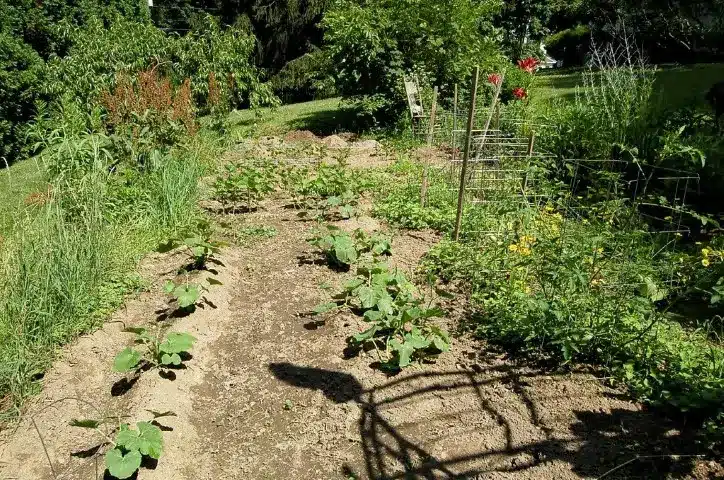It seems there is a lot more interest in home gardening, and a lot of them have been asking:
How do I start a beginner vegetable garden?
Start small with easy-to-grow vegetables like tomatoes, lettuce, and radishes. Choose a sunny spot with well-drained soil and consider container gardening if space is limited.

1. Choosing the Right Vegetables:
When starting a beginner vegetable garden, it’s essential to choose vegetables that are easy to grow and well-suited to your climate and growing conditions. Opting for beginner-friendly vegetables such as tomatoes, lettuce, radishes, and herbs like basil and parsley can provide a good starting point. These vegetables are relatively low-maintenance and tend to produce a bountiful harvest, making them ideal for novice gardeners.
2. Selecting a Suitable Location:
The success of your vegetable garden largely depends on its location. Choose a sunny spot with at least 6-8 hours of direct sunlight per day for optimal plant growth. Vegetables thrive in sunlight, so selecting a location with ample sunlight exposure is crucial. Additionally, ensure that the chosen spot has well-drained soil to prevent waterlogging, which can lead to root rot and other issues.
3. Preparing the Soil:
Healthy soil is the foundation of a successful vegetable garden. Before planting, it’s essential to prepare the soil properly. Start by testing the soil pH and nutrient levels to determine if any amendments are needed. You can do this using a home soil test kit or by sending a soil sample to a local agricultural extension office for analysis. Once you have the results, incorporate organic matter like compost or aged manure to improve soil structure and fertility. This will provide essential nutrients for your plants and help retain moisture in the soil.
4. Starting Seeds or Transplants:
Deciding whether to start your vegetable garden from seeds or purchase transplants from a nursery is an important consideration. Starting from seeds allows you to have a wider variety of vegetables to choose from and can be more cost-effective. However, it requires more time and attention to ensure successful germination and growth. Alternatively, purchasing transplants provides a head start and can be less challenging for beginners. Follow seed packet instructions for proper planting depth and spacing if starting from seeds, or transplant seedlings with care, ensuring they are planted at the correct depth and spaced adequately apart.
5. Watering and Maintenance:
Consistent watering is essential for the health and growth of your vegetable garden. Water your plants regularly, keeping the soil evenly moist but not waterlogged. A drip irrigation system or soaker hose can help deliver water directly to the roots while minimizing water waste. Additionally, mulching around your plants can help retain moisture in the soil and suppress weed growth. It’s also important to monitor your garden for pests and diseases regularly. Inspect your plants for signs of pest infestation or disease, such as yellowing leaves, holes in foliage, or unusual spots. Address any issues promptly to prevent them from spreading and causing further damage to your plants.
6. Harvesting and Enjoying Your Yield:
One of the most rewarding aspects of vegetable gardening is harvesting your own fresh produce. Harvest your vegetables when they reach maturity, which is typically indicated on seed packets or plant labels. Different vegetables have varying harvesting times, so be sure to familiarize yourself with the specific requirements of each crop. Once harvested, enjoy your homegrown kitchen garden vegetables in fresh salads, cooked dishes, or preserved for later use. There’s nothing quite like the taste of freshly picked produce from your garden.
Conclusion:
Starting a beginner vegetable garden can be a gratifying journey filled with learning and discovery. By choosing easy-to-grow vegetables, selecting a suitable location, preparing the soil, starting seeds or transplants, watering and maintaining your garden, and harvesting your yield, you’ll soon be on your way to enjoying a thriving vegetable garden of your own. Remember, gardening is a process that takes time and patience, so don’t be discouraged by setbacks along the way. With dedication and care, your beginner vegetable garden will flourish and provide you with fresh, nutritious produce for years to come. Happy gardening!
- Best Brush Cutter: Top 5 Models for Lawn Maintenance in 2024 - January 10, 2024
- Protecting Your Garden from Rodent Damage: Tips and Tricks - December 14, 2023
- Small Space Gardening: Transform Your Garden with Raised Beds - December 10, 2023
